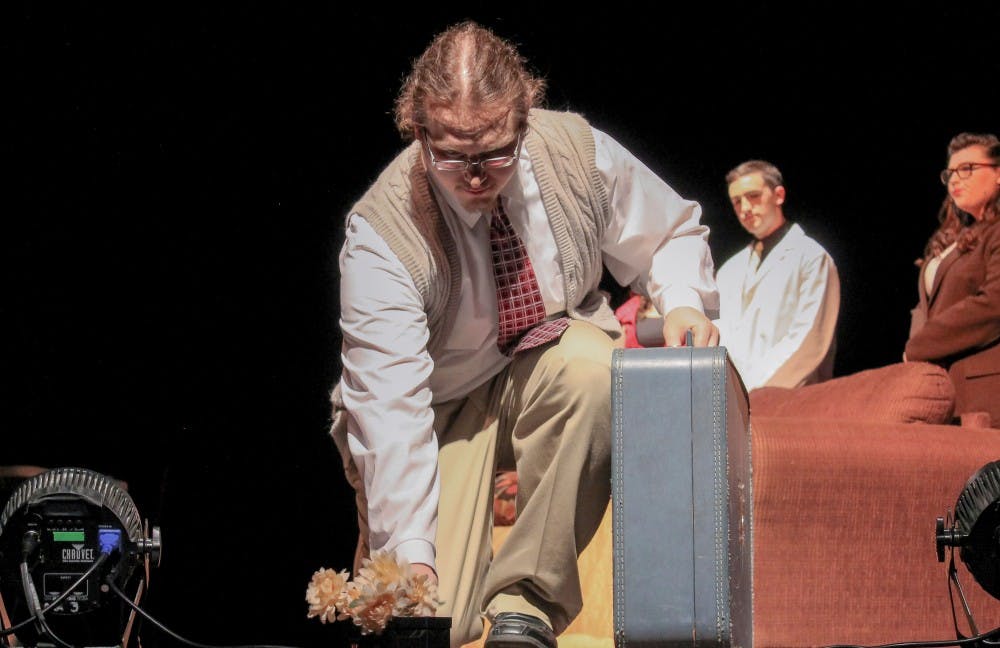Last Friday, Act V Productions woke “Flowers for Algernon” from the depths of its slumbers in its worn-out pages.
“There is something magical about this piece, whether read in the book or seen on the stage,” said director Caitlin Dull, a sophomore at Shippensburg University.
The story focuses on Charlie Gordon, played by SU senior Nickolys Hinton. Charlie is a mentally handicapped student at the Beekman College Center for Retarded Adults. When his teacher, Alice Kinnian, played by SU freshman Gina LoPresti, recommends Charlie for an experiment, he soon finds himself as a lab rat.
The experiment involves brain surgery conducted by Dr. Strauss, played by SU freshman Nick McKim. The surgery is intended to make Charlie smarter over time. Professor Nemur, played by SU junior Shannon Keene, and his graduate student Burt Seldon, played by SU freshman Jonathan Wightman, also help lead the experiment. Previously, the team did the same experiment on a rat named Algernon, who showed significant amounts of intellectual improvement.
After Charlie’s surgery, he is told to keep a journal to record his progress. During the play, journal entries were read aloud to the audience in Charlie’s voice. In the beginning, he spoke with a broken speech, but over time his intelligence increased and he could speak more clearly.
When Charlie’s intelligence starts to grow, he realizes he likes Miss Kinnian and asks her out on a date. Charlie changes into a suit for the date and wears it for the remainder of the play. The suit, in a sense, represents his newfound intelligence.
As Charlie gets smarter, he realizes it is not as good as he anticipated. He notices that his co-workers are mean to him and he eventually gets fired from his bakery job. Dr. Strauss informs Charlie that the more intelligent you become, the more problems you have, which is something most college students can relate to.
Eventually, Dr. Strauss, Professor Nemur and Burt Seldon discover the fatal flaw in their experiment. While Charlie’s IQ improved over time, it was not permanent. Soon, Charlie’s intelligence deteriorates and Algernon dies. Charlie fears for what is to come and does not want to hurt those around him.
The play ends with Charlie placing flowers on Algernon’s grave before departing with a suitcase to an institution.
Dull explained that there is more to the story, but they shortened it into the 45-minute segment. Dull decided to select the one-act version of the play, arranged by The Dramatic Publishing Co.
“I really like the fact that it includes everyone in an equal amount,” Dull said.
The cast and crew have been preparing for this play over the past three months.
“But now the time has arrived: The lights will come up and all of our efforts will have paid off,” Dull said.
“Flowers for Algernon” is a science-fiction novel written by Daniel Keyes in 1958. It won a Hugo award for Best Short Story in 1960 and has been adapted into both plays and movies.



The Slate welcomes thoughtful discussion on all of our stories, but please keep comments civil and on-topic. Read our full guidelines here.